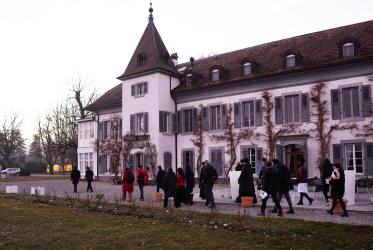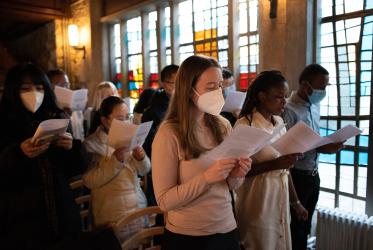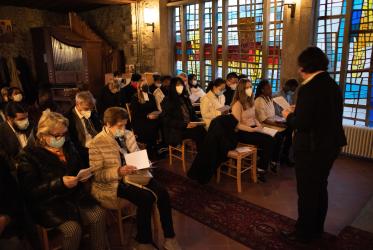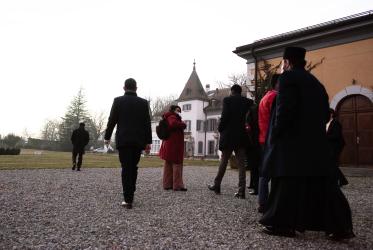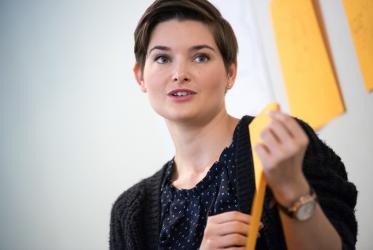Displaying 1 - 18 of 18
Bossey student Carolina Zamorano reflects on study visit to Rome
02 February 2022
Markus Imhoof film receives human rights award
10 October 2019
WCC president for Europe: “Develop local dialogue”
22 October 2018
WCC representative shares insights on youth at Synod of Bishops
15 October 2018
Paving the way for ecumenical studies, learning English in Bossey
24 September 2018
Conference explores Christian approach to borders
05 October 2017
WCC/UN conference calls for coordinated action on refugee crisis
20 January 2016
WCC urges responsibility for and support to the refugees in Europe
04 September 2015
Youth and church activists highlight peace pedagogy
28 August 2015



